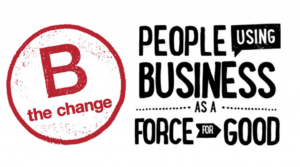 Paul Poler, CEO of Unilever, a massive multinational corporation, wrote an editorial in the
Huffington Post in July 2014. Poler realized such a shift cannot happen in a vacuum. The driving force for companies cannot continue to be posting quarter-to-quarter gains. Not only is it too hard on both people and the environment and it’s not sustainable.
Paul Poler, CEO of Unilever, a massive multinational corporation, wrote an editorial in the
Huffington Post in July 2014. Poler realized such a shift cannot happen in a vacuum. The driving force for companies cannot continue to be posting quarter-to-quarter gains. Not only is it too hard on both people and the environment and it’s not sustainable.
I have excerpted portions of this radical and optimistic call to adventure to the business community. It is worth reading the entire editorial.
It was Winston Churchill who famously said that ‘democracy was the worst form of government apart from all the others that had been tried.’ Much the same can be said for capitalism, particularly the form of capitalism that has been practiced over the past 20 years.’ … Capitalism, with all its faults, is the only game in town. The task confronting the present generation of leaders is to improve on it, to build on its strengths and eradicate its weaknesses. … If business is to regain the trust of society, it must start to tackle the big social and environmental issues that confront humanity, especially at a time when governments seem increasingly to be caught in shorter and shorter election cycles and have a hard time internalizing the global challenges in an increasingly interdependent world…As I have said many times, ‘Business cannot be a mere bystander in the system that gives it life.’ The environmentalist Paul Hawken believes that if there is any deficit we are facing right now, it’s a deficit of meaning….
Organizations are embracing similar thoughts to those of Poler. The B Corps movement in the United States is gaining traction with the formal adoption of triple-bottom lines: profits, people, and the planet. From the B-Corps website: “Collectively, B Corps leads a growing global movement of people using business as a force for good . Through the power of their collective voice, one day all companies will compete to be best for the world , and society will enjoy more shared and durable prosperity for all.”
Circles USA has also developed its talking points, which follow, about the intersection of reducing poverty in the emerging economy. We cannot reduce poverty rates without understanding where the economy is heading. There are clear indications that the nature of work is changing, placing new demands on people to be their own contractors rather than counting on a traditional job. For the time being, there is a major opportunity for people to prepare for and secure middle-skill jobs that employers are struggling to fill. We make it too hard for people to take jobs and leave subsidy programs because of the Cliff Effect that decreases subsidies faster than income can replace these basic expenses.
1. The New On-Demand, 1099 Economy
Companies can generate more wealth with fewer workers than ever before. They are rapidly shedding U.S. blue-collar jobs through automation, artificial intelligence, and globalization. More of the working poor no longer enjoy the security of being on a company’s payroll (w2 jobs ) and must take more temporary jobs, now being described as on-demand or 1099 jobs. While this change can be exciting for middle-income and upper-income people, the working poor and those leaving welfare will need relationship programs such as Circles USA to help them navigate this new environment.
2. The Middle-Skill Gap
Baby boomers are leaving the workforce in massive numbers. However, increasing numbers of younger people are unqualified for today’s workforce, creating a temporary crisis in filling middle-skill jobs (high-school graduation required but not a college degree). We are making the argument that solving poverty is no longer just a humanitarian cause. It is an economic imperative. Circles USA understands what it takes for people with backgrounds in poverty to make it in the workplace. And we know how to recruit and train Allies to provide much-needed support both inside and outside the workplace.
3. The Phantom Workforce
Many employers are struggling to find enough qualified workers to fill their job demands. In communities with higher poverty rates than the norm, it can be difficult to attract new talent from other places. People associate high poverty rates with more crime, weak schools, and aging infrastructure, among other undesirable community conditions. Employers must mine their own local talent from the unqualified labor pool. In other words, if employers want to grow their businesses and need more qualified workers, they must work in new ways to increase the qualified local workforce.
There is an untapped “phantom workforce”—people who should work, want to work, could work, but won’t or can’t– because of the cliff effect and the lack of comprehensive programs that support people through the entire process. The phantom workforce will resist entry- and middle-skill work opportunities until the government eliminates the cliff effect in benefit programs. The cliff effect occurs when assistance programs such as childcare subsidies and Medicaid remove benefits faster than people can earn enough income to replace them. By not pro-rating the exit ramp from these programs, the government creates a financial crisis for workers as they earn more income.
Circles USA is collaborating with organizations across the country to educate policymakers on the urgency and benefits of eliminating the cliff effect. We have built cliff effect calculators to beta test this impact. Cliff effect calculators give people the information they need to understand how increased income will affect their overall spending power as they leave benefit programs. These calculators also educate policymakers about the disincentives and harm caused by programs that do not have pro-rated exit ramps.
From the book: Enough Money, Meaning & Friends ~ By Scott C. Miller
To learn more about Scott Miller, please see his website here.

